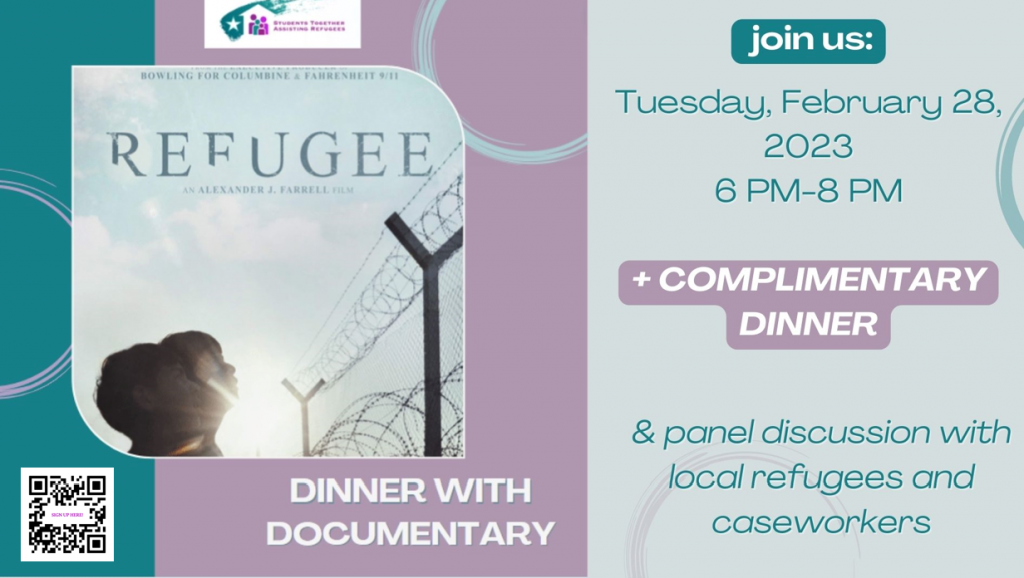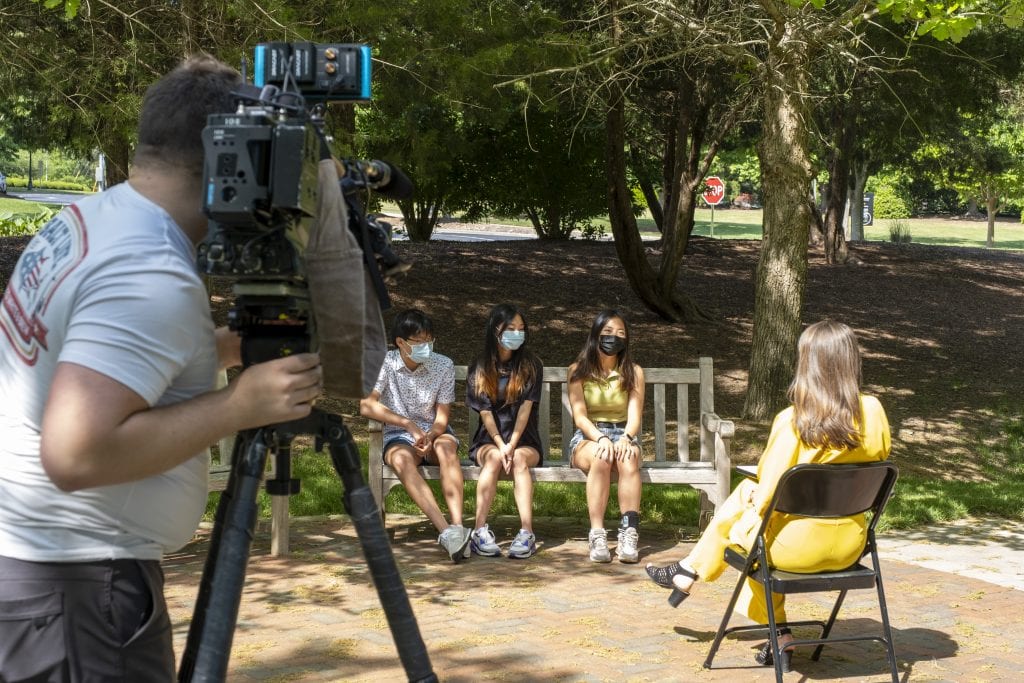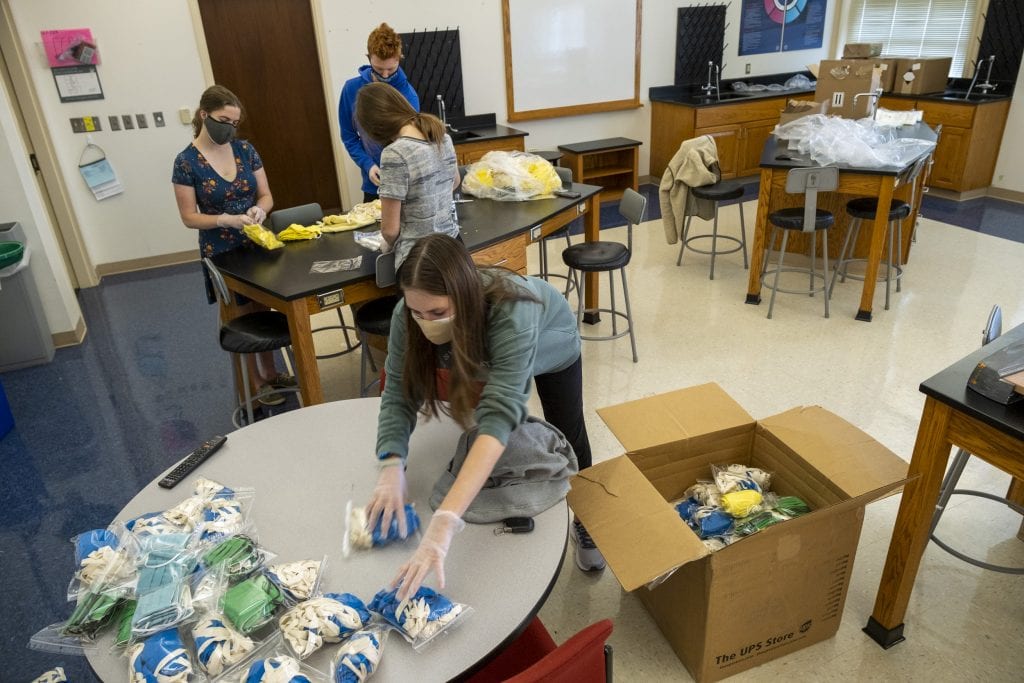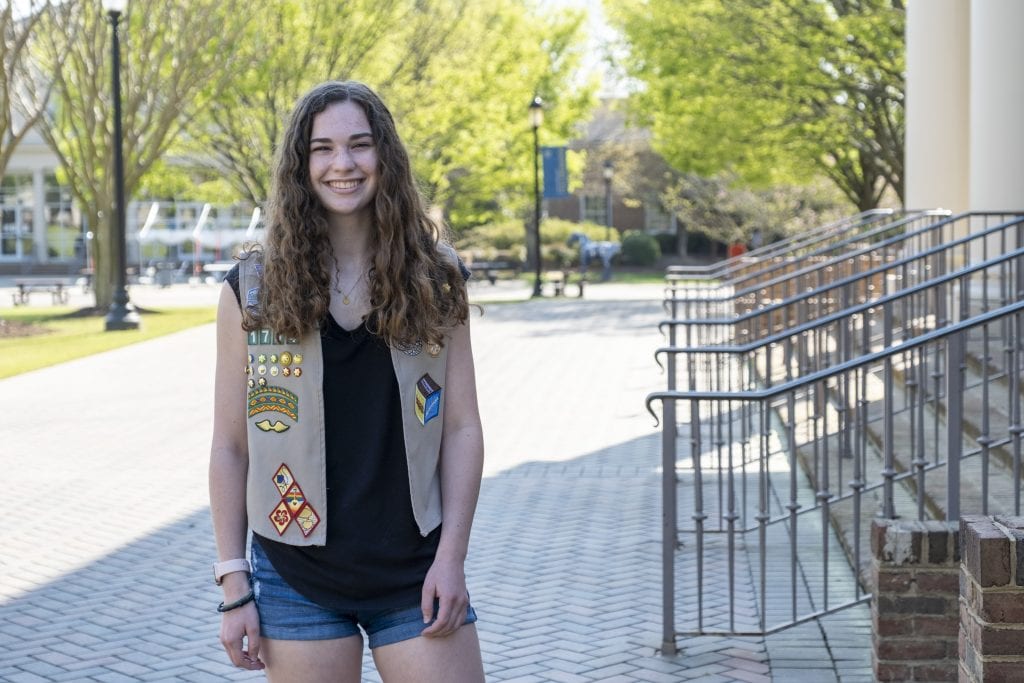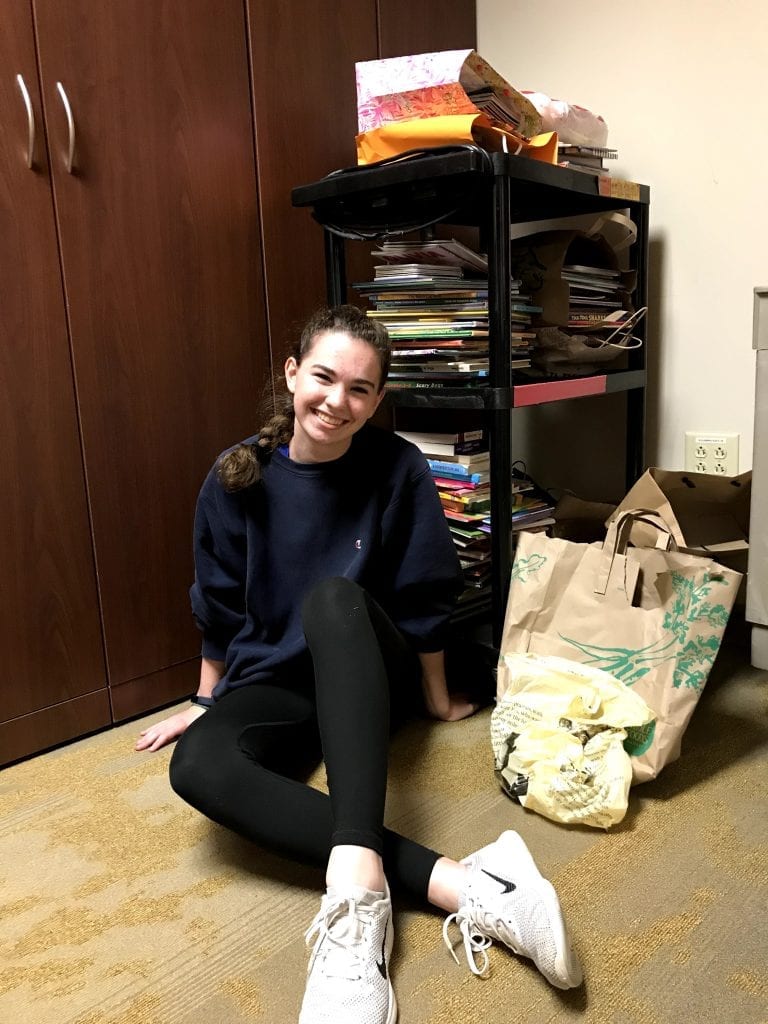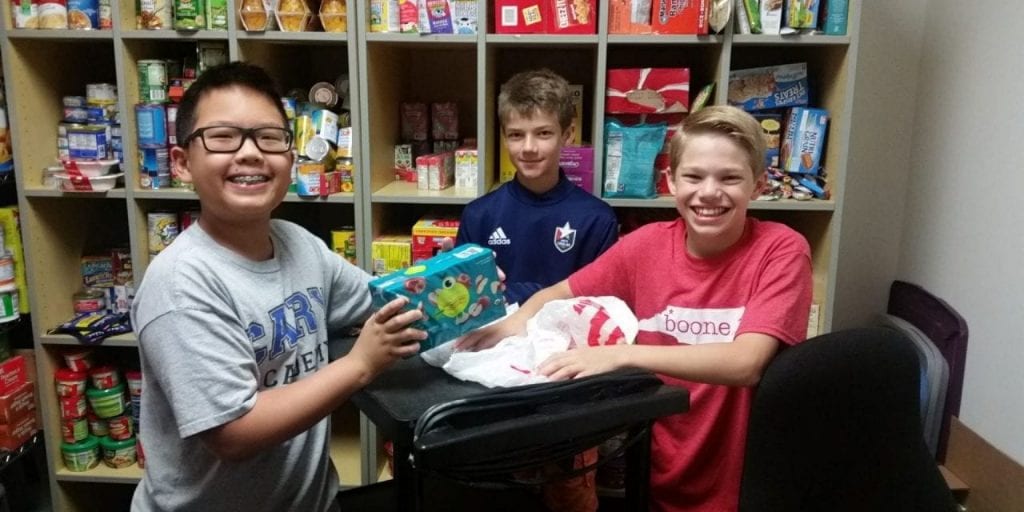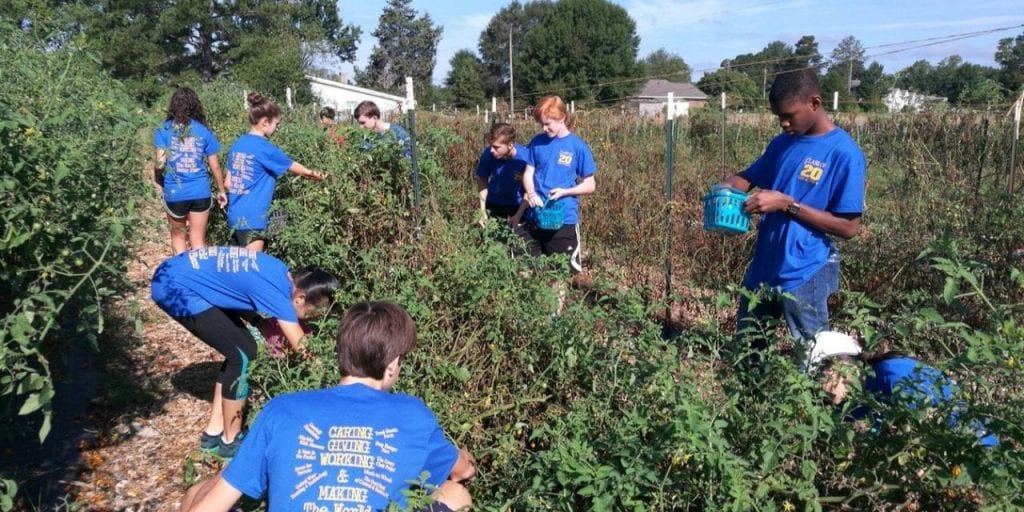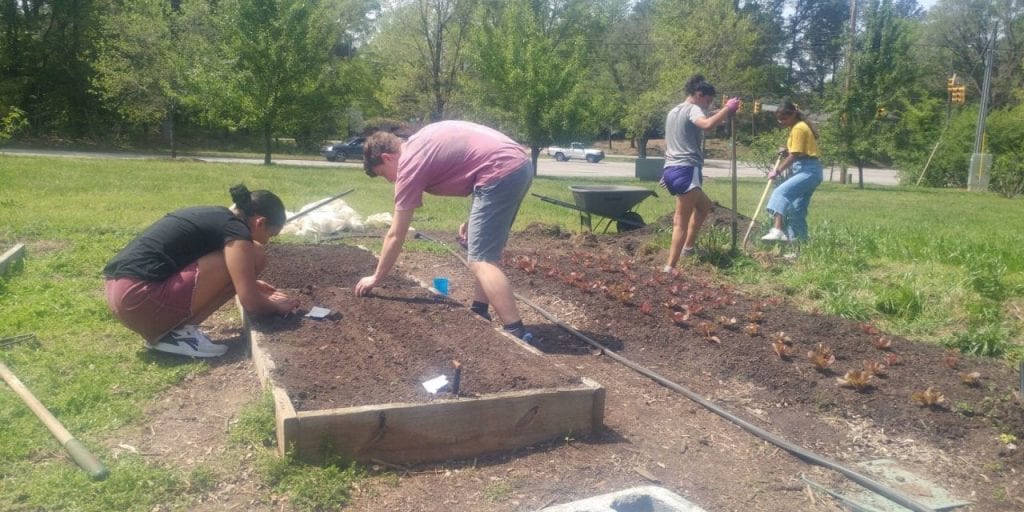As Service Learning Director, I have the unique honor of helping push our students outside the comfort of our familiar school environment and into the wider world. Time and time again, I have seen firsthand the incredible learning and self-discovery these uncomfortable and unfamiliar moments often yield.
Consider: a spark of unexpected human connection with someone you perhaps thought was so different. A new perspective gained on learning firsthand the daily barriers with which some live—roadblocks that seem unimaginable to you. The development of compassion and kindness as we think beyond ourselves to discover and appreciate the humanity in all our neighbors. The sense of belonging and purpose created by addressing a social issue that is personally relevant and meaningful.
These impactful moments are the magic of service learning—the ones that help prepare our students to go out into the world as kind, ethical, and empathic changemakers.
Indeed, service learning offers unique opportunities for students to put the social-emotional learning curriculum of the classroom and advisory program into meaningful community practice. Empathy is woven into all of CA’s service-learning initiatives, from Special Olympics to Delta Service Club’s work to the annual Giving Tree program, Backpack Buddies, and beyond.
I don’t do this work alone, of course. I’m supported in it by CA’s mission and core values, our incredible employees, and a host of community partners. These partnerships—which balance community needs with CA’s student learning and development goals—are developed with humility, intention, and a genuine desire to understand social problems. After all, it is only in an environment of trust and respect that we can work together towards solutions, whether through direct community service or advocacy work.
Across CA and within the Center for Community Engagement (CCE), students, faculty, and staff are challenged to engage in discussions, experiences, and unfamiliar, eye-opening, and exhilarating learning. In our Middle School, I’ve worked closely with our faculty to integrate service learning into their curriculum, advisory time, and Community Days.
Just check out what we’ve been up to this year (and its only November!).
In sixth grade, students learn about local food insecurity and engage in our Backpack Buddies program. The initiative begins with a day of experiential service learning, visiting local food stores to explore food costs, nutrition, and accessibility. They hear from the Interfaith Food Shuttle staff and are challenged to think about what it might feel like to go hungry over a weekend or not have an adult at home to help fix a meal. Throughout the school year, students run targeted food collection campaigns and think about how to engage the resources of our CA community for the benefit of students who go to school just down the road. Sixth graders pack 120 food bags each month for our partner school, Reedy Creek Elementary, which CA parents deliver.
“Straightforward, concrete experiences give 6th graders the building blocks they need to understand abstract ideas. “Service” can be especially abstract for 6th graders who aren’t old enough yet to participate in many service-centered activities. Backpack Buddies allows them to give back to our local community in a tangible, immediate way. Students organize the food, pack the bags, make friendly cards, and help remind their grown-ups to contribute to our food drives.”– Katie Taylor, sixth-grade
Our seventh graders study migration in history and language arts with a current focus on farmworkers. Here, service learning might include a panel discussion with recent immigrants and those who work in NGOs serving them). It might entail more direct service opportunities—such as gleaning sweet potatoes for donation to food-insecure neighbors—that give students a sense of the grueling work of migrant farmworkers. Or ask students to use their new persuasive writing skills to develop a compelling call for clothing donations to benefit one of our longtime partner organizations, Episcopal Farmworker Ministry in Dunn, NC (this year, students brought in over 1100 clothing items!).
“Done well, service learning can be the heart and soul of a curriculum—and the means for real, authentic change in communities. At its best, it is about partnerships—about mutuality—about listening and addressing real needs. We have strived to do this with our study of migration in seventh-grade history and language arts. We want our kids to really understand what it means to move to a new place—how hard that can be—and how we can support folks who are new to our area. If we do it well, our kids really put themselves in the shoes of migrants and refugees—and see them as people like themselves. Service learning can be a powerful way for students to be better listeners and more community-oriented people.” – Lucy Dawson, seventh-grade language arts teacher and team leader.
This year, in 8th grade, students are engaging in a pilot environmental justice service learning initiative focused on water quality. In science class, students are diving deeply into local ecological justice issues in North Carolina, with case studies on topics such as water contamination, stormwater runoff, and habitat destruction—and conducting hands-on water quality testing at the SAS ponds in order to determine the impact of nearby human activities on the health of this habitat. This week, students participated in teach-ins with visiting researchers, journalists, riverkeepers, local government workers, and NGO administrators who dedicate their professional lives to keeping water safe and accessible to all members of our community. Students then c
In language arts, they are “taking a stand”— an immersive project that requires them to research, articulate, and persuasively advocate for a cause that is personally meaningful. This cross-curricular project will continue into the spring, where students will learn about student-led advocacy movements in the past and present in their history classes.
Community-based service learning allows our student scientists to connect what they learn in class to the real world. It asks them to think critically about the role of science in a broader community context. When students participate in environmental justice service learning experiences connected to current and local water quality challenges, they deepen their understanding and see how it can help inform thoughtful action and community collaboration.” — Rachel Bringewatt, eighth-grade science teacher
Service learning is a fiber that is naturally, yet intentionally, woven into the work of CA. In all our service learning initiatives, students reflect deeply on their learning experiences—a critical learning step that helps them develop a sense of self and their place in the world.
As CCE Project Coordinator & Program Manager CJ Bell put it, “These authentic learning experiences set students on the path to becoming changemakers as they work to resolve persistent issues in our local and global society. What a gift to be starting this work in Middle School!”





